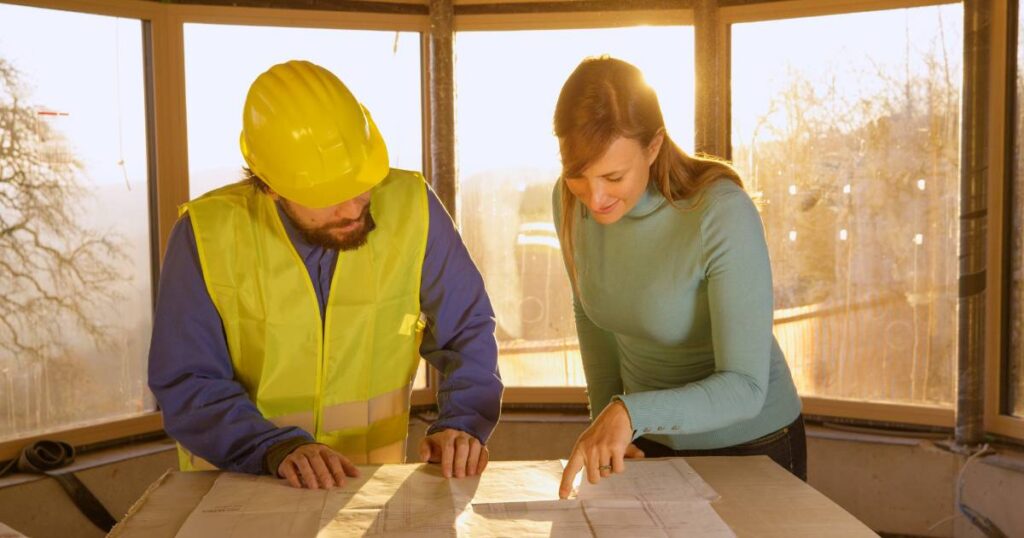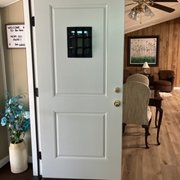A competent contractor possesses the expertise, experience, and knowledge to execute your project precisely and efficiently. They deeply understand construction techniques, building codes, and industry standards, enabling them to deliver results.
Hiring the wrong contractor can have severe consequences beyond mere dissatisfaction. It can lead to subpar workmanship, delays, cost overruns, and even legal issues. The repercussions of hiring the wrong contractor can be both financially and emotionally draining, underscoring the need for thorough research and evaluation.
Researching Potential Contractors
- Gather Recommendations from Trusted Sources
One of the most effective ways to begin your search for a residential contractor is by gathering recommendations from trusted sources. Seek referrals from family members, friends, neighbors, or colleagues who have had positive experiences with contractors.
- Checking Online Reviews and Ratings
Online platforms offer a wealth of information when it comes to evaluating contractors. Pay attention to both positive and negative feedback to gain a comprehensive understanding of their reputation and reliability.
- Verifying Licenses and Insurance Coverage
A reputable contractor should hold the necessary licenses, demonstrating compliance with local regulations and building codes. Request proof of insurance, including liability insurance and worker’s compensation coverage, to protect yourself from potential liabilities or accidents during the project.
- Assessing Contractor’s Experience and Expertise
Evaluate the contractor’s experience and expertise in handling projects similar to yours. Inquire about their years in the industry, the types of projects they specialize in, and their track record of successful completion.
- Reviewing Portfolios and Past Projects
Request to see the contractor’s portfolio or past projects to assess the quality of their work. A reputable contractor will proudly showcase their accomplishments and provide references for you to contact. Examine their previous projects’ craftsmanship, attention to detail, and aesthetics.
Meeting and Interviewing Contractors

- Setting Up Initial Meetings
Once you have identified a list of potential contractors, setting up initial meetings with each is essential. This allows you to establish a personal connection, gauge their professionalism, and assess their suitability for your project.
- Asking Relevant Questions
- Years of experience: Inquire about the contractor’s overall experience in the construction industry.
- Specializations and areas of expertise: Ask about the contractor’s specializations and areas of expertise.
- Project timeline and availability: Discuss the contractor’s availability and their estimated timeline for completing your project.
- Budgeting and cost estimates: Discuss the residential contractor’s approach to budgeting and cost estimates.
- Communication and updates: Inquire about their communication practices and how they will keep you informed throughout the projects.
- Evaluating Contractor’s Communication Skills and Professionalism
A reliable contractor should be attentive, responsive, and able to articulate their ideas and project management approach clearly. Evaluate their listening skills and assess whether they understand your vision and objectives.
Checking References
- Requesting and Contacting References
Once you have met with a contractor and are considering hiring them, requesting references from their past clients is ideal. Ask the contractor for references to inquire about their experience working with the contractor.
- Inquiring about the Quality of Work
When contacting the references, ask specific questions regarding the quality of the contractor’s work. Inquire about the craftsmanship, attention to detail, and project outcome.
- Asking about Adherence to Timelines and Budgets
Ask about the punctuality of the contractor in completing the project within the agreed-upon timeframe. Inquire about any unexpected delays and how effectively the contractor communicated and resolved them.
- Assessing Overall Satisfaction with the Contractor
Understanding the references’ level of satisfaction will provide valuable insights into the contractor’s performance and ability to deliver a positive client experience.
Review Contracts and Documentation
- Requesting Detailed Written Contracts
Once you have selected a contractor, it is best to have a detailed written contract in place. Request a contract that clearly outlines the terms and conditions of the project. A written agreement provides legal protection and ensures that both parties agree regarding the expectations and responsibilities.
- Examining Contract Terms and Conditions
Pay close attention to the following key elements: scope of work, project timeline, payment schedule, material and labor warranties, and change order procedures.
- Verifying Insurance Coverage and Liability Protection
Before signing the contract, verifying the residential contractor’s insurance coverage and liability protection is essential. Request proof of liability insurance, which protects you from accidents or property damage during the project. Ensure that the contractor has adequate coverage for their employees and subcontractors.
Working with the Right Contractor

- Higher Quality Work: A diligent selection process helps you find contractors with a track record of delivering high-quality workmanship. This ensures that your project meets or exceeds your expectations in terms of craftsmanship and finishes.
- Timely Project Completion: Selecting a reliable contractor through thorough evaluation increases the likelihood of your project being completed on time.
- Budget Control: A careful evaluation process helps you choose a residential contractor who provides accurate cost estimates and effectively manages the budget. This reduces the risk of unexpected expenses and costly overruns.
- Enhanced Communication and Collaboration: Thoroughly vetted contractors demonstrate effective communication skills and a willingness to collaborate with clients.
- Peace of Mind: By conducting thorough research and evaluation, you can know that you have chosen a reputable and trustworthy contractor.
Successful Residential Project
Clear Project Vision: Clearly articulate your vision, goals, and expectations to the contractor. Provide detailed information about your design preferences, functional requirements, and any specific features you desire.
Open Communication: Maintain open lines of communication with your contractor throughout the project. Regularly communicate your needs, concerns, and feedback to ensure the project stays on track.
Flexibility and Adaptability: Understand that unforeseen challenges may arise during construction. Remain flexible and open to adjustments while ensuring changes are appropriately documented and agreed upon.
Regular Site Visits: Visit the construction site regularly to monitor progress, address concerns, and stay involved in decision-making. This hands-on approach helps maintain quality control and promotes a strong working relationship with the contractor.
Trust in the Residential Contractor: Trust in the expertise and experience of your chosen contractor. Trusting their recommendations and decisions fosters a collaborative environment and allows them to deliver their best work.



























